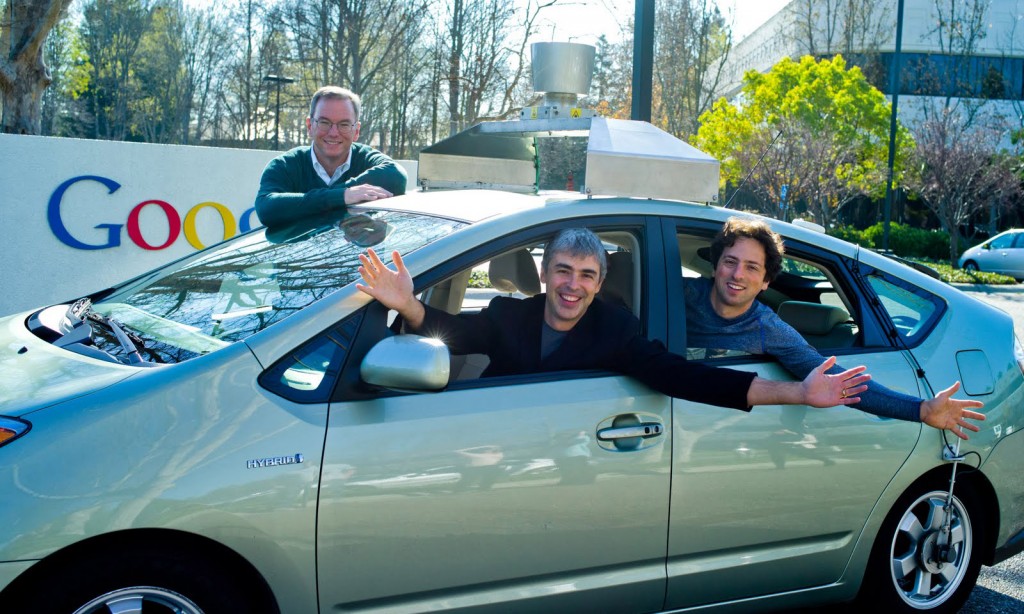
The founders of Google and one of their autonomous Toyota Prius hybrids
The bill, which establishes guidelines for the use of autonomous cars on public roads, passed in a unanimous, bipartisan vote of 37-0.
It now heads to the California State Assembly, which is expected to pass the bill as well in the next couple of weeks.
Speaking with the Los Angeles Times, California State Senator Alex Padilla (D-Pacoima) said the primary motivation for autonomous cars was the fact that they would save lives and prevent injuries, though he stated that they would also reduce traffic congestion and emissions.
“Human error is the cause of almost every accident on the road today. If autonomous technology can reduce the number of accidents, then we also reduce the number of injuries and fatalities on California’s roads,” Padilla said. “For me, this is a matter of safety.”
Other states are looking at passing similar bills, with Arizona, Florida, Hawaii and Oklahoma all considering allowing autonomous cars to drive on public roads.
Currently, Nevada is the only state in the U.S. that has allowed autonomous cars to be registered and driven on public roads alongside other drivers. Only this month search engine giant Google was awarded the nation’s first license for autonomous cars from Nevada’s DMV.
The special license, which is expected to be provided to several other firms including automakers, allows a vehicle to be driven autonomously though stipulates that at least two occupants must be present when it’s in self-driving mode.
